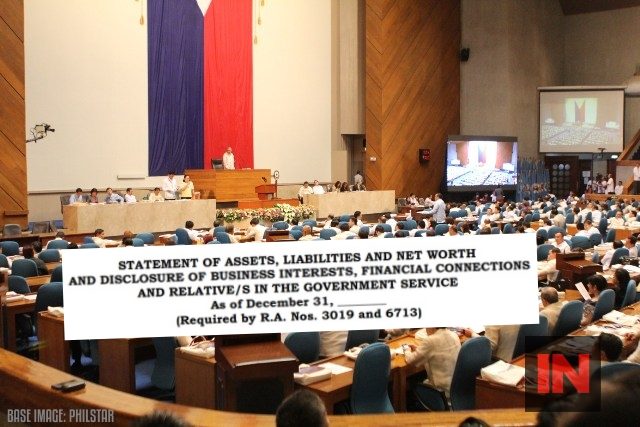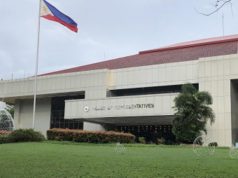MANILA, Philippines – Close to three months after the deadline of filing, the House of Representatives has yet to release the summaries of the Statement of Assets and Liabilities and Net Worth (SALN) of its 294 members.
Sought for explanation, Oriental Mindoro Representative Reynaldo Umali pointed out that a committee has been formed to draft guidelines on handling requests for the SALN details of individual congresspersons.
Asked if the lawmakers were hiding anything, Umali said, “nothing,” adding that the summary of the SALN has not been made public because this could lead to a deluge of requests for additional details about the House members’ assets, which the leadership was not yet prepared to handle.
“There are requests for SALN of individuals and I don’t know what to do with it … I just told the committee to let’s please adopt this soonest,” Umali, who heads the committee, said.
For example, Umali said one request received by the Secretary General’s office was the for a copy of the SALN of Vice President Leni Robredo when she was still a member of the House.
Robredo served as Camarines Sur representative from 2013 to 2016.
The SALN summaries were traditionally released on the second week of May, which is two weeks after the April 30 deadline of filing.
The summary contains the declaration of assets, liabilities and net worth of the congressmen. To get a copy of the detailed SALN of a congressman, a request has to me made and justified by the party wanting to have a copy.
In 2012, then Speaker Feliciano Belmonte Jr. created a special committee that would review its members’ compliance with rules on the filing of their SALN. He had said the same order would provide the guidelines on how to handle the public’s requests for the lawmakers’ SALN.
Belmonte, however, said that he did not implement the proposal of the committee, saying “their study made the process more complicated.”
A SALN is essentially a “declaration of one’s assets (i.e. cars, houses, cash in bank, etc), liabilities (i.e. loans, debts, etc) including business and financial interests of a public official, of his or her spouse, and of his or her unmarried children under 18 years old still living in their parents’ household.”
The basis for the SALN is the 1987 Philippine Constitution and RA 6713 or the Code of Ethics and Ethical Standards for Public Officials and Employees. The Code requires public officials to file their SALNs to promote accountability and honorable service in government.
On three separate occasions, SALN must be filed: Within 30 days after a public official assumes office, on or before April 30 of every year, and within 30 days after separation from the office.
The SALNs are filed in the following offices:
*Office of the Ombudsman for president and vice president.
*Secretary of the Senate and Secretary-General of the House of Representatives for senators and congressmen, respectively.
*Clerk of Court for Justices of the Supreme Court, Court of Appeals and other higher courts *Court Administrators for judges of trial courts.
*Office of the President for members of the cabinet, undersecretaries, heads of government-owned and -controlled corporations (GOCCs) and state universities, and officers of the Armed Forces of the Philippines (from colonel or naval captain rank).
*Deputy Ombudsman for regional, city and barangay officials of government offices, agencies and GOCCs as well as regional officers of the AFP.
*Office of the Civil Service Commission for all other public officials and employees from central offices.
Former Supreme Court Chief Justice Renato Corona was impeached and convicted by the impeachment court partyly based on questions pertaining to the details of his SALN.










